I know how important a good night’s sleep is — it’s when my body recovers, my mind recharges, and I get ready to tackle the next day. But what if some of the habits I thought were harmless were actually messing with my sleep quality? Things like late-night snacking or scrolling through my phone in bed seem innocent enough, but they might be the reason I wake up feeling groggy and out of sorts. I did some digging and found 16 habits that could be ruining my sleep — and the simple ways I can fix them.
1. Drinking Caffeine Too Late in the Day

A cup of coffee after lunch might seem like a harmless pick-me-up, but caffeine stays in your system for hours. Even if you don’t feel wired, it can interfere with your body’s ability to wind down, disrupting the deep, restful stages of sleep. Try switching to decaf or herbal tea after 2 p.m. to avoid this issue.
2. Using Your Phone or Tablet Before Bed

The blue light emitted from screens tricks your brain into thinking it’s still daytime, which messes with your body’s production of melatonin, the hormone that helps you sleep. Even if you dim the screen, scrolling through social media or checking emails can keep your mind buzzing. A better habit is to put away screens at least an hour before bed and read a book or listen to calming music instead.
3. Eating Large Meals Late at Night

A heavy dinner right before bed can leave your body working overtime to digest your food, making it harder for you to fall asleep. Spicy or acidic foods can also trigger heartburn or indigestion, adding to the discomfort. Try eating at least two to three hours before going to bed to give your body time to settle.
4. Keeping Your Room Too Warm
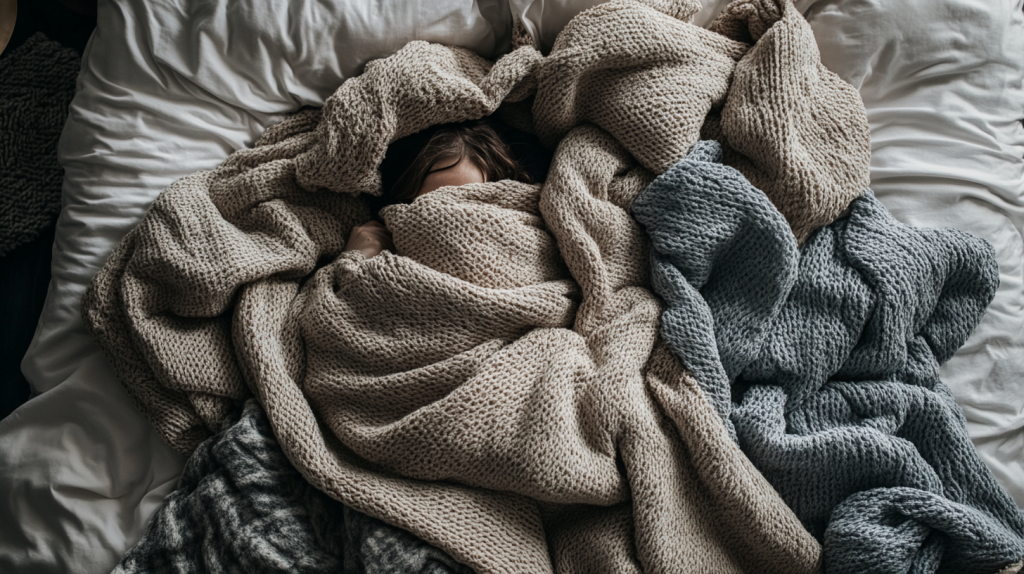
While it might feel cozy to have the heat cranked up, a room that’s too warm can interfere with your body’s natural cooling process, which helps induce sleep. The ideal bedroom temperature is between 60 and 67 degrees Fahrenheit. Lower the thermostat, or use lighter bedding for better sleep.
5. Sleeping In On Weekends
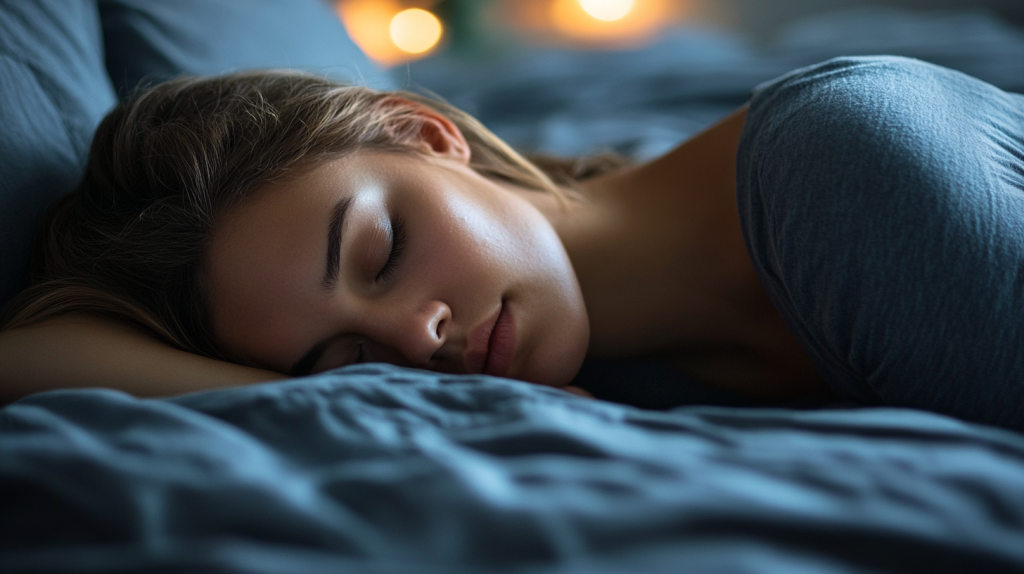
Catching up on sleep might feel like a treat, but drastically changing your sleep schedule on weekends can confuse your body’s internal clock. This makes it harder to get back into a regular routine during the week. Instead, try to stick to the same bedtime and wake-up time every day, even on weekends.
6. Drinking Alcohol Before Bed

A nightcap might make you feel drowsy at first, but alcohol actually disrupts your sleep cycle. It reduces the amount of REM sleep you get, which is the most restorative part of your slumber. You might wake up more frequently during the night and feel less rested the next morning. If you drink, try to do so a few hours before bed.
7. Using Your Bed for Activities Other Than Sleep
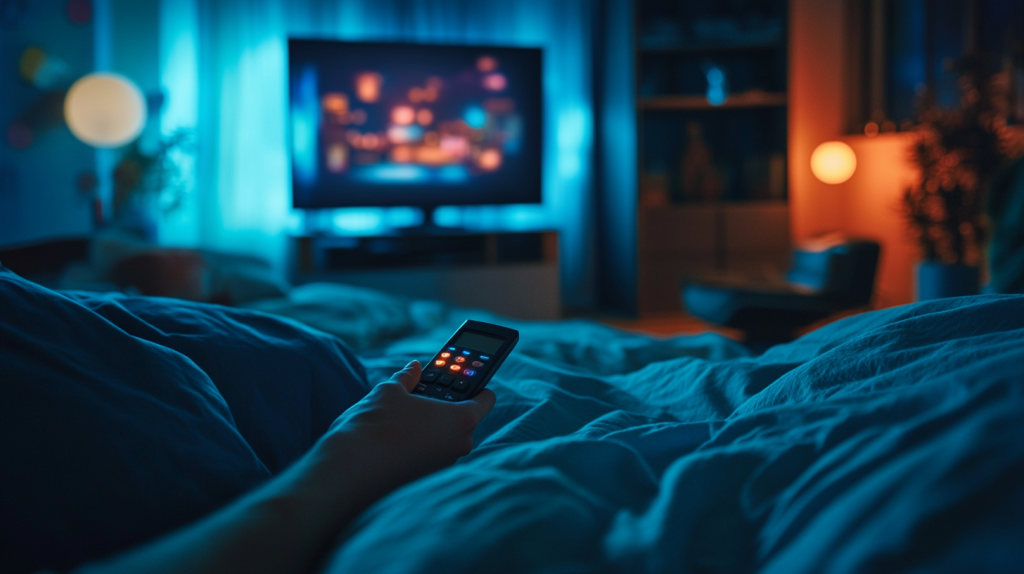
Your brain associates places with activities, so if you regularly watch TV, work, or eat in bed, your brain might not automatically associate your bed with sleep. Try to reserve your bed for sleep and relaxation only, so that your body knows it’s time to wind down when you lie down.
8. Exercising Right Before Bed
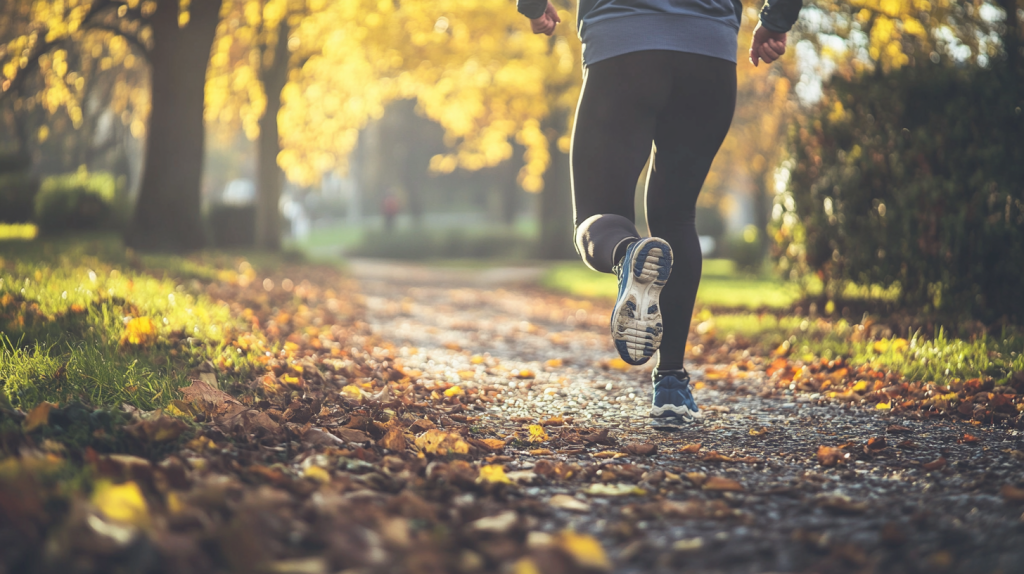
While exercise is great for sleep, doing it too late in the evening can have the opposite effect. High-intensity workouts increase your heart rate and adrenaline levels, making it harder for you to relax. Try working out earlier in the day, or opt for calming activities like yoga or stretching in the evening.
9. Drinking Too Much Water Before Bed

Staying hydrated is important, but drinking large amounts of water right before bed can cause you to wake up throughout the night to use the bathroom. To avoid this, focus on drinking plenty of water earlier in the day and taper off as bedtime approaches.
10. Taking Long Naps During the Day

A short power nap can be refreshing, but if you nap for too long, especially in the late afternoon, it can make it harder to fall asleep at night. If you feel the need for a nap, try to limit it to 20-30 minutes and take it earlier in the day.
11. Sleeping With the TV On
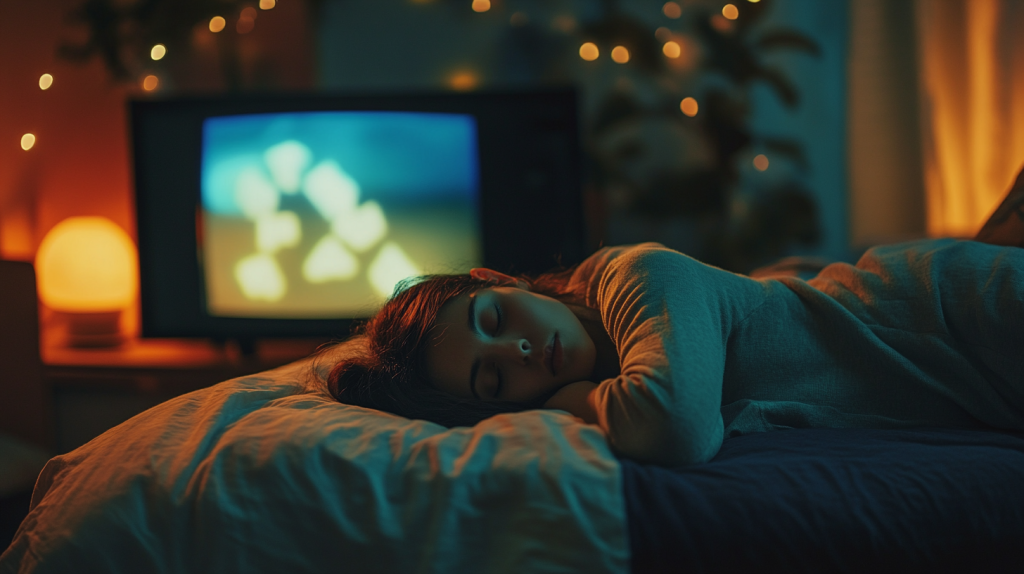
Some people like falling asleep to the hum of the television, but the noise and flickering light can prevent you from reaching the deep stages of sleep. Even if you think it helps you doze off, you may not be getting the quality sleep you need. Instead, try using a white noise machine or calming sounds.
12. Ignoring Stress Before Bed

If you’re going to bed with a mind full of worries, it’s no wonder you can’t sleep well. Stress causes your body to release cortisol, the “wake-up” hormone, which can keep you alert long into the night. Try using relaxation techniques, such as meditation, journaling, or deep breathing exercises, to calm your mind before bed.
13. Using Harsh Lighting at Night
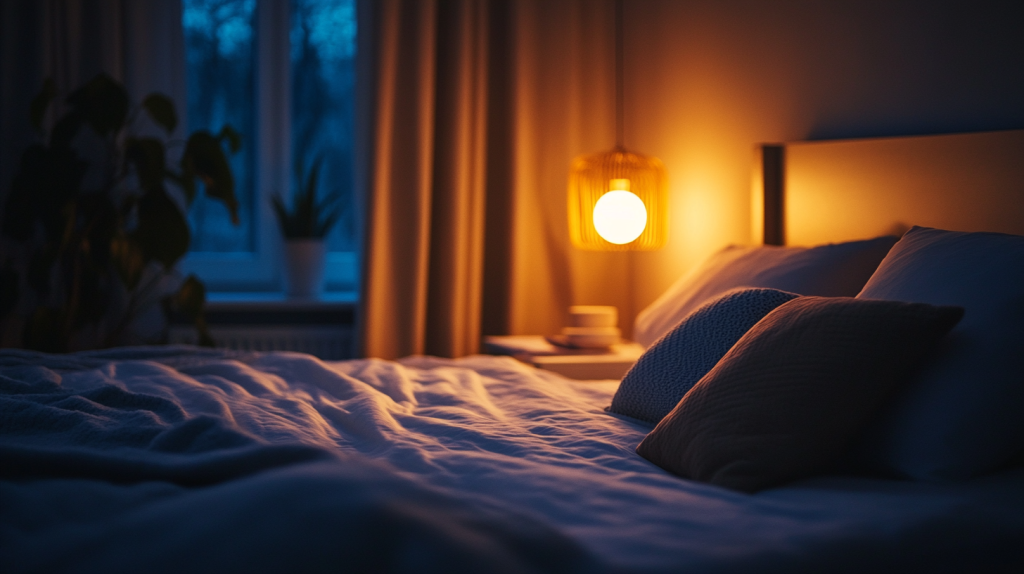
Bright lights in your home can disrupt your body’s natural circadian rhythm by mimicking daylight. This can make it harder to feel sleepy at bedtime. Switch to dim or warmer-toned lighting in the evening to help your body wind down naturally.
14. Having an Erratic Sleep Schedule
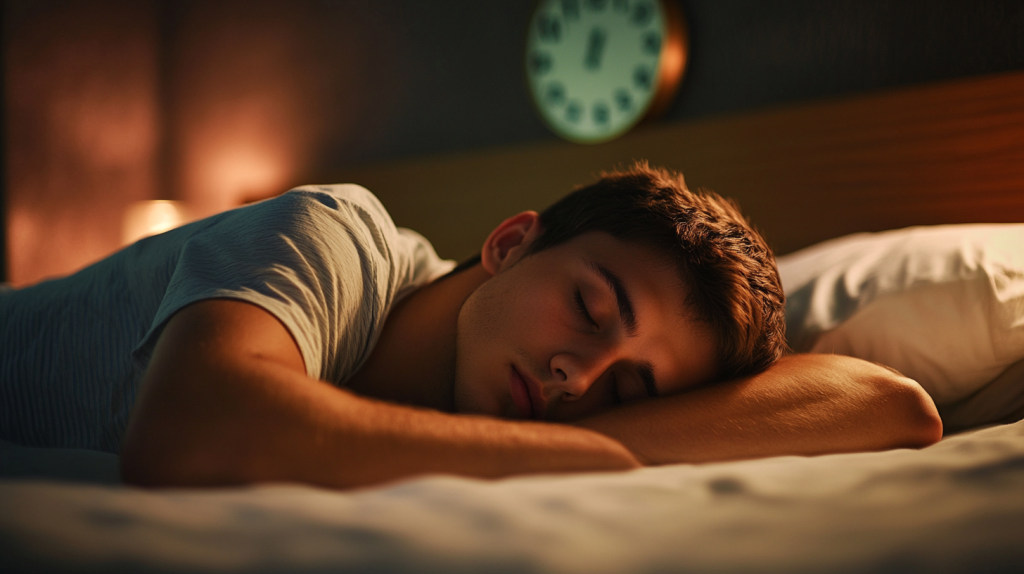
Going to bed at different times each night throws off your body’s internal clock, which makes it difficult to establish a consistent sleep pattern. Your body thrives on routine, so aim to go to sleep and wake up at the same time each day, even on weekends.
15. Snacking on Sugary Foods Before Bed

A sugary snack might satisfy a craving, but it can lead to blood sugar spikes and crashes during the night, which can disrupt your sleep. Opt for healthier, sleep-friendly snacks like a banana or a handful of nuts if you get hungry before bed.
16. Skipping a Bedtime Routine
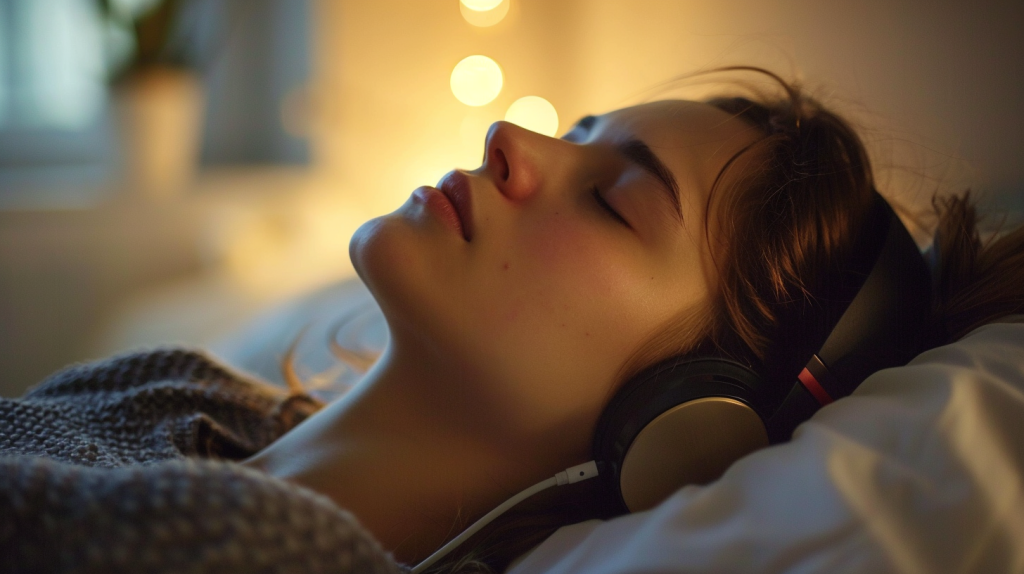
Without a consistent bedtime routine, your body might struggle to know when it’s time to sleep. Simple habits, like dimming the lights, reading, or listening to calming music, can signal to your brain that it’s time to wind down. Establish a routine that helps you relax and prepares you for restful sleep.
16 American Foods Brits Can’t Stand

Food preferences can vary wildly across cultures, and what’s considered a delicacy in one country might be seen as downright bizarre in another. This cultural divide is particularly evident when comparing American and British cuisines. While the two nations share a common language, their tastes in food can be worlds apart. From overly sweet concoctions to processed cheese products, there are certain American foods that many Brits find hard to stomach.
Read More: 16 American Foods Brits Can’t Stand
Ellen has been obsessed with logic puzzles, jigsaws, and cryptograms since she was a kid. After learning she was taught how to play chess wrong by a family friend (so they could win), she joined her school chess club and the rest is history.


